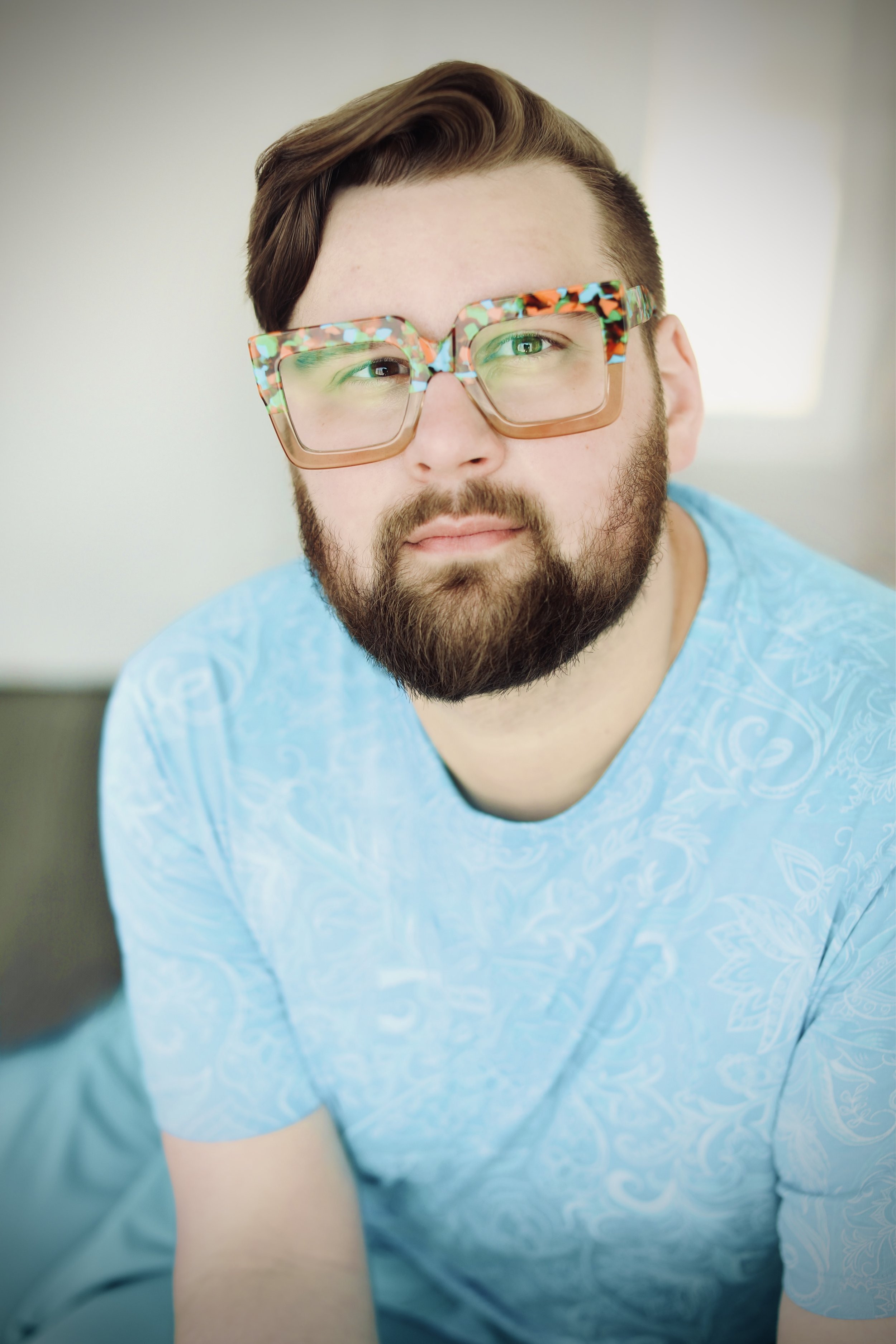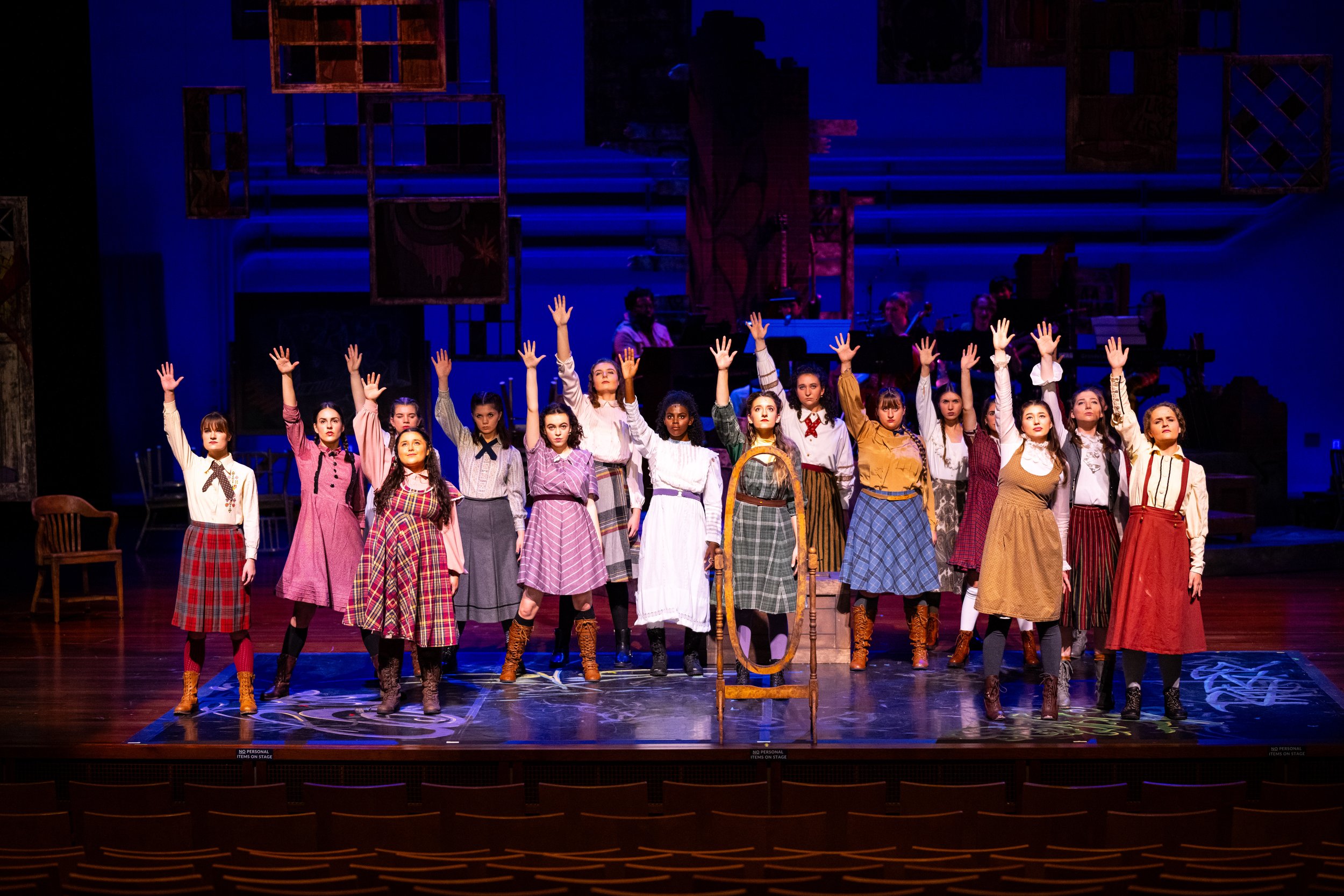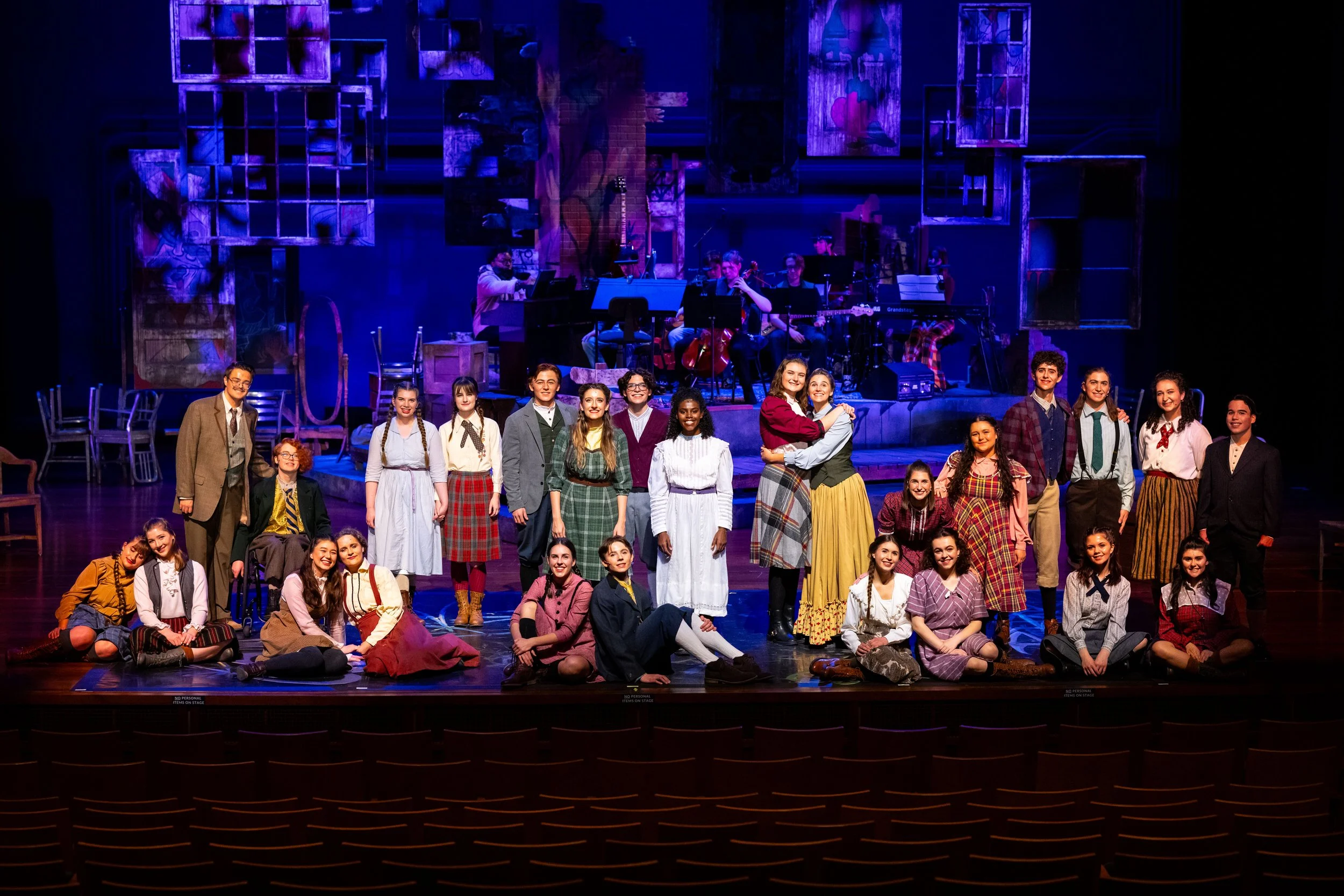Joseph Lyons-Wolf, M.F.A. (he/him) is an interdisciplinary movement artist currently residing in the greater Indianapolis area. His body of work includes directing and choreographing for regional theaters, education and engagement for Disney on Broadway, and university instruction. His research interests include de-colonial and somatic pedagogy for jazz and tap dance as well as dismantling the gender binary in musical theatre choreography. His creative work is centered in queer theory and somatic practice. Joseph currently serves as an Assistant Professor of Musical Theatre, Jazz, and Tap Dance in the Theatre & Dance Department at Ball State University.
Contact for private lessons, workshops, or theatrical productions.
Artist Statement
I am a physical storyteller and my core principles as an artist are inspiring creative curiosity and cultivating movement that is rooted in joy. Experiencing the performing arts should stimulate wonder and make the world feel like a brighter place. I am constantly inspired by what originally ignited my love: the spectacular movement of old Hollywood musical movies. The lavish grandeur and emphasis on character-driven storytelling influence me constantly. In my artistic process, I strive to craft cinematic stage pictures and movement that stimulate awe and transports the audience. My queerness is fundamental to my practice of movement and influences me to challenge and dismantle archaic gender roles in musical theatre and dance. As a plus-sized dancer, I have limitations when it comes to what I can physically do but nothing can curtail what my choreography can express. I reframe obstacles as creative opportunities for exploration and aim to generate confidence in the artists that I work with by embracing their unique talents. Even in moments of unison I aim to honor individuality. The spirit of collaboration runs through my creative process. When dancers have genuine artistic ownership in a choreographic work, their collective experiences contribute to art that radiates truth. I hope to put art into the world that delights audiences and kindles connection.
Philosophy of Teaching
I owe my resilience and character to the theatre and dance teachers from my youth that helped me find my voice and speak my truth. As an educator, I am committed to excellent professional training that celebrates the individuality of young performers. The true rigor of this industry is staying true to your “why” and sustaining a passion for life-long learning. At times, navigating this field can feel like an uphill battle and I have seen and experienced first-hand how artists can lose their sense of creative curiosity and experience burnout. I don’t believe in training that is centered in competition because that’s normalized in the “real world.” At the end of the day, no one ever “wins” at art. I believe that quality professional performing arts education can remain rigorous while being concurrently embedded with joy. I prioritize pedagogy that challenges students while celebrating and honoring their individual artistic voice and identity. By modeling authenticity and creating an exuberant environment, I aim to inspire students to stay rooted in their truth.
My favorite characteristic of musical theatre is its collaborative nature. There’s an inherent magic to seeing diverse individual talents merge to create something incredible. The spirit of collaboration runs through my creative process. When performers have genuine artistic ownership in a work, their collective experiences contribute to art that radiates truth. I aim to cultivate a supportive artistic community in the classroom by carefully scaffolding moments of connection. In the classroom, the student is ultimately the lead partner; what is created belongs to them. It is of the highest importance that I build a supportive environment where students feel safe to take risks and make self-discoveries. As their ally in unearthing an individualized artistic process, it is my role to guide them to the revelation but ultimately let them make the leap.
I reframe obstacles as creative opportunities for exploration and aim to generate confidence in the artists that I work with by embracing their unique talents. Even in moments of choreographic unison, I aim to honor individuality. Art should accurately reflect the world and I prioritize the inclusion of curricular materials that reflect the diversity of bodies, identities, and abilities that make our world beautiful. Representation is always on my mind while designing curriculum as it kindles a personal connection for students to educational material and fosters a sense of belonging in an industry that can often feel exclusive. It is essential to expose students to a global view of performance and to include movement and techniques of historically marginalized people. As an outcome of engaging with conscientious training, students become culturally aware professionals and understand the difference between cultural exchange and appropriation. Prioritizing the inclusion of diverse voices in course materials and technical vocabularies are critical baby steps to dismantling systemic racism within academia and the American theatre.
More important than the artist that evolves is the person that develops from an education in the performing arts. The values that the arts instill will steer a student for the rest of their life. Self-confidence, communication skills, vulnerability, critical observation, and servant leadership will aid them professionally and kindle a passion for putting good into the world. Artistry can transcend all human barriers and reach beyond language, politics, or comfort. Discovering a broad human connection ultimately renders us both vulnerable and empathetic. Empathy is the catalyst for creating a better world, and I believe it is what we need the most right now. Through my teaching artistry, I hope to spark the trajectory of future artists to change the field (and world) for the better.

“The teacher is of course an artist, but being an artist does not mean that he or she can make the profile, can shape the students. What the educator does in teaching is to make it possible for the students to become themselves.”
- Paulo Freire
'



